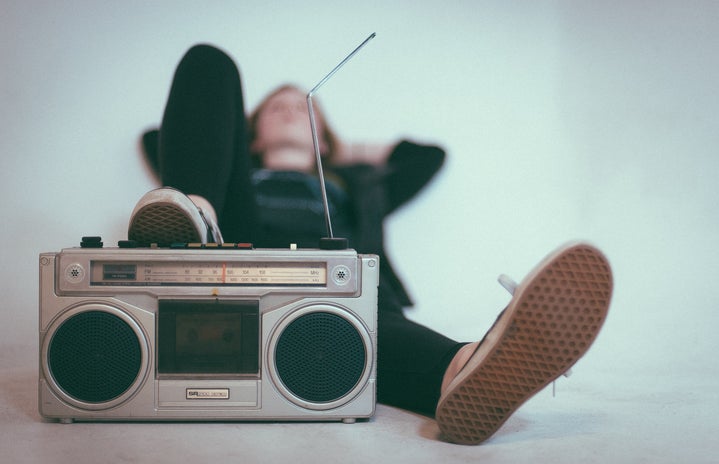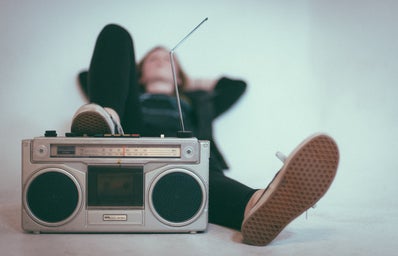Trigger Warning: There are mentions of shooting and death in the following article.
When we, as people, experience a traumatic event there are endless amounts of options we have to turn to when coping, both good and bad. Personally, I think the most helpful option that’s available, if you can afford it, is therapy. It’s healthy and proven to work (if you score a good therapist). Therapy was never really my thing — been there, done that, never really helped — and I knew there was nothing wrong with that.
After the mass shooting at my high school on Valentine’s Day of 2018, I was offered therapy. I was offered a lot of things, actually. I turned therapy down, thinking I was fine. I wasn’t, but it’s easier to live in denial and push it off, saying you didn’t have it as bad and didn’t need therapy. At the time, that’s exactly how I felt. I used that as an excuse with my parents and they let me be, knowing that I would ask for help if I thought I needed it.
Still, the months afterwards I felt lost. I had a few friends who helped me at the time, but they were all going through their own emotional healing journey. I knew this was something I had to do by myself. So, how to do that? How do I even begin to heal from something like this?
I could’ve thrown all of my energy into activism, like many of my classmates did. I supported the gun control movements that followed, but never had the energy nor the time to become so deeply involved; I was too busy finishing a yearbook and writing obituaries. It had to be something that wasn’t time-consuming or difficult.
About a month prior to Valentine’s Day, I had just gotten into a new music group called BTS. I thought they danced really well and figured they could replace the boy-group hole that One Direction left once they disbanded. Because they sing in Korean, this meant I had to read translations of their songs after I listened to them. I’m not saying there aren’t songs about moving on or pain or sadness in English…of course there are. But there was something in BTS’ songs, the stories they told and the niche topics they covered, that drew me to their music. Some of their songs were not even close to positive; they dove deep into pain, into feeling lost or frustrated or confused or stuck.
I think that’s what I needed to hear, in the beginning. I needed to hear that my feelings were valid, that it was okay to wallow in them and not turn it into something positive. All I had heard for the months following that day was people pitying me or asking me invasive questions or calling it all some political ploy to hate on America. It was exhausting.
But here was music that told me to feel everything that I felt and cry it all out. Music that said yeah it will get better, but there’s no rush to getting back to normal. And it wasn’t just BTS that helped me do that (though they were the majority), but writing as well. That was always something that came naturally to me, so it was easy to scribble down feelings and let it all out. It was pure luck that the poems later got published. There was nothing unique or special about how I wrote, but the feelings I portrayed through the words that I used. The anger I had towards the day, towards everything.
It was BTS that healed me — their music, their stories. They taught me that lessons and messages transcend language, that music itself transcends borders. They continue to help me to this day.
I heal more and more everyday, and I don’t think I will ever reach the end of it, but that’s okay. When you experience something traumatic, there is no timeline for you to heal. You do what you can, and that’s enough. You find what carries you on, and you carry on, whether it be therapy, religion, art, or activism.
So, as the three-year anniversary of Valentine’s Day approaches, I remember a few things. I remember that I live and learn and love for the 17 people who no longer can. I remember them on a day I no longer will ever be able to celebrate. I remember who and what helped me get to where I am today, most especially my family. I remember that there is still work to be done, both within myself and in government. I remember I have BTS. I remember I have music.
I have attached a list of ways our school has decided to memorialize the 17 victims. It’s something the community finds is the best way to remember them.
So, to everyone who may also be struggling, remember that you do not need to rush to move on. Feel everything you need to feel; process it and maybe even find a way to memorialize that pain. Do not begin to heal before you’re ready — but remember that you are never alone and there are so many resources that are there for you. You’ve got this.
Want to keep up with HCBU? Make sure to like us on Facebook, follow us on Instagram, check out our Pinterest board, and read our latest Tweets!




